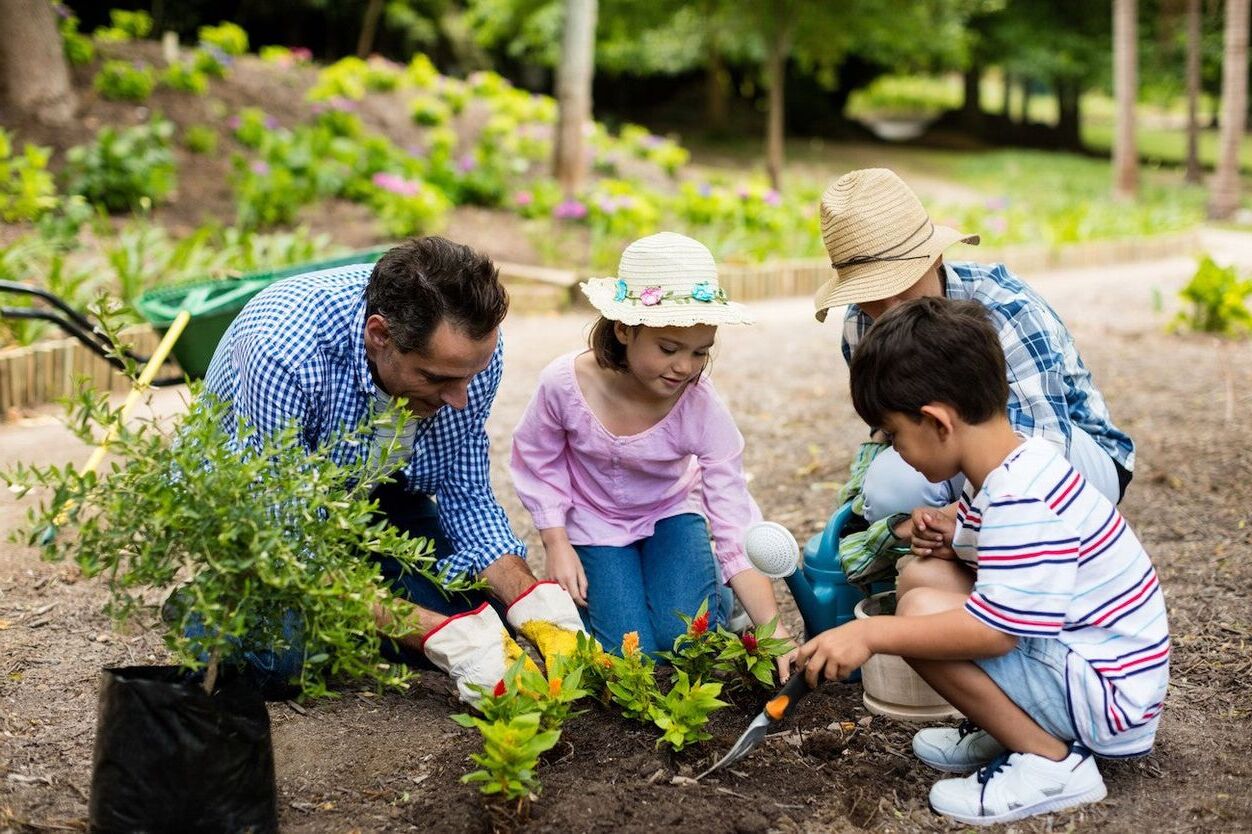
Gardening is more than just a hobby; it's a way to connect with nature and enjoy the outdoors. Did you know that gardening can improve your mental health and reduce stress? Studies show that spending time in a garden can lower cortisol levels, which helps you feel more relaxed. Plus, growing your own vegetables ensures you eat fresh, organic produce. Gardening also boosts physical activity—digging, planting, and weeding can burn calories and strengthen muscles. Whether you have a sprawling backyard or a small balcony, there's always room to grow something beautiful. Ready to dig deeper? Here are 20 fascinating facts about gardening that might surprise you!
Benefits of Gardening
Gardening isn't just about growing plants. It offers numerous benefits for your health, environment, and even your wallet. Let's dig into some fascinating facts about gardening.
-
Gardening can reduce stress levels. Spending time with plants can lower cortisol, the stress hormone, making you feel more relaxed.
-
It boosts your immune system. Exposure to dirt and microbes in the garden can strengthen your immune system, making you less susceptible to illnesses.
-
Growing your own vegetables can save money. Homegrown produce is often cheaper than store-bought, and you know exactly what goes into your food.
-
Gardening can improve mental health. The act of nurturing plants can provide a sense of purpose and accomplishment, reducing symptoms of depression and anxiety.
-
It promotes physical activity. Digging, planting, and weeding are great forms of exercise, helping you stay fit and active.
Environmental Impact of Gardening
Gardening isn't just good for you; it's also beneficial for the planet. Here are some ways gardening helps the environment.
-
Plants absorb carbon dioxide. By growing more plants, you can help reduce greenhouse gases in the atmosphere.
-
Gardens provide habitats for wildlife. Birds, bees, and other creatures find food and shelter in gardens, supporting biodiversity.
-
Composting reduces waste. Turning kitchen scraps and garden waste into compost keeps them out of landfills and enriches your soil.
-
Native plants conserve water. Choosing plants that are native to your area can reduce the need for watering, saving this precious resource.
-
Gardens can reduce urban heat. Plants and trees provide shade and release moisture, cooling down urban areas and reducing the need for air conditioning.
Fun Facts About Plants
Plants are more fascinating than you might think. Here are some intriguing facts about the green wonders in your garden.
-
Sunflowers can clean soil. They have the ability to absorb toxic substances like lead and arsenic from the soil, making it safer for other plants.
-
Bamboo is the fastest-growing plant. Some species can grow up to 35 inches in a single day, making it a sustainable resource.
-
Tomatoes were once considered poisonous. In the 18th century, Europeans thought tomatoes were toxic because they belong to the nightshade family.
-
Carrots were originally purple. The orange carrots we know today were developed by Dutch growers in the 17th century.
-
Some plants can "talk" to each other. Through a network of fungi in the soil, plants can share nutrients and even warn each other of pests.
Gardening Techniques
Different techniques can make your gardening experience more efficient and enjoyable. Here are some methods to consider.
-
Companion planting can boost yields. Growing certain plants together can improve growth and protect against pests.
-
Mulching conserves moisture. Adding a layer of mulch around your plants helps retain soil moisture and reduces the need for watering.
-
Crop rotation prevents soil depletion. Changing the types of plants you grow in each area of your garden each year can keep the soil healthy.
-
Raised beds improve drainage. Building raised garden beds can help with soil drainage and make gardening easier on your back.
-
Hydroponics allows for soil-free gardening. Growing plants in nutrient-rich water can be a space-saving and efficient way to garden indoors.
The Final Bloom
Gardening offers more than just pretty flowers. It boosts mental health, provides fresh produce, and helps the environment. Knowing the benefits of composting and the importance of pollinators can make your garden thrive. Companion planting helps keep pests away naturally. Raised beds can save your back and improve soil quality. Native plants need less water and care, making them perfect for beginners.
Remember, even small spaces can become lush gardens with container gardening. Vertical gardens are great for tight spots too. Mulching keeps weeds down and soil moist. Pruning helps plants grow better. Rain barrels save water and money.
Gardening connects you to nature and offers a peaceful retreat. Whether you’re a newbie or a seasoned pro, these facts can help you grow a beautiful, productive garden. Happy gardening!
Was this page helpful?
Our commitment to delivering trustworthy and engaging content is at the heart of what we do. Each fact on our site is contributed by real users like you, bringing a wealth of diverse insights and information. To ensure the highest standards of accuracy and reliability, our dedicated editors meticulously review each submission. This process guarantees that the facts we share are not only fascinating but also credible. Trust in our commitment to quality and authenticity as you explore and learn with us.


